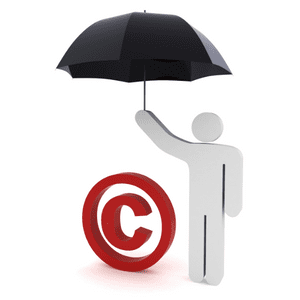COPYRIGHT LICENSE AGREEMENT
Crafted by legal professionals in Australia, our documents are not only legally sound but also easily customisable to suit your specific requirements. With each purchase, receive a free legal drafting booklet to guide you through the editing process seamlessly.


Ready to use Legal Documents at Your Fingertips
Instant access to professionally drafted precedents. Save time, focus on what matters.
✔ Developed by expert lawyers
✔ Instant digital delivery
✔ Trusted by legal professionals Australia-wide
COMPREHENSIVE COVERAGE
Ensuring you have everything you need in one place.
FREE WITH EVERY PURCHASE
Our legal drafting booklet to guide you through the necessary steps in editing your documents.
EASY CUSTOMISATION
Each document is designed to be easily editable, allowing you to tailor the agreements to your specific needs without hassle.
LEGALLY SOUND
All our documents are crafted by legal professionals and adhere to Australian legal standards, giving you confidence in their validity.
SUITABILITY
AUS
COPYRIGHT LICENSE AGREEMENT
A Copyright License Agreement is a legal contract in which the copyright holder (licensor) grants certain rights to another party (licensee) to use a copyrighted work under specified conditions. This agreement outlines the terms and scope of how the copyrighted material can be used, ensuring that both parties understand their rights and obligations.
COPYRIGHT LICENSE AGEEMENT
A copyright license agreement is needed in several situations where copyrighted material is used. Here are some common scenarios:
- Commercial Use: If you want to use copyrighted material (e.g., music, images, text) in a commercial product or service, such as an advertisement, product packaging, or a commercial website, a license is necessary to avoid infringement.
- Distribution: When distributing copyrighted content, like books, software, films, or music, obtaining a license allows for legal distribution.
- Broadcasting and Streaming: Television networks, radio stations, and streaming services need licenses to broadcast or stream copyrighted content.
- Public Performance: Playing music or showing films in public spaces (e.g., restaurants, concerts, theaters) requires a license from the copyright holder.
- Educational Use: Educational institutions often need licenses to use copyrighted materials in curricula, such as books, articles, and multimedia content, beyond what is allowed under “fair use.”
- Derivative Works: Creating adaptations, translations, or other derivative works based on copyrighted material requires a license.
- Online Content: Websites, blogs, and social media platforms that use copyrighted images, videos, or text need licenses to legally display or share that content.
- Software Development: Using or incorporating third-party software or code into a new software application requires a license agreement with the original software developer or copyright holder.
- Publishing: Authors and publishers need licenses for using copyrighted illustrations, photographs, or excerpts in books or articles.
- Licensing Content for Resale: Companies that license content to be resold or distributed, such as stock photo agencies, need agreements with the creators or copyright holders.
Obtaining a copyright license ensures that the use of the material is legally permitted and that the copyright holder receives appropriate compensation for their work. It also helps prevent legal disputes and potential penalties for copyright infringement.
INCLUDES GST
PREVIEW SAMPLE
ABOUT US
Established since 2015, Precedents Online leads the industry with a diverse collection of over 300 legal templates. Our legal documents, meticulously crafted by practicing Solicitors and renowned legal authors, provide you with the precise solutions you seek. Step into a world where legal paperwork is made easy .
Precedents Online, helping you draft like a pro! Receive a free handbook with any purchase of our customisable legal document templates. Start drafting with confidence using our expertly crafted precedents with our bonus guidebook.
CHOOSE YOUR TEMPLATE
Template Only
- Legal Template
- Legal Drafting Handbook
Document Review
- Click here for a quote from our independent law firm to discuss your requirements after template purchase.
